Lillian Gilbreth Postdoctoral Fellowships at Purdue Engineering
The Gilbreth Postdoctoral Fellowships at Purdue Engineering are awarded in memory of Dr. Lillian Moller Gilbreth, Professor at Purdue from 1935-1948. A world renowned pioneer in the application of psychology to industrial engineering, Dr. Gilbreth’s work epitomized interdisciplinary research and broader impact on industry and society.
Dr. Lillian Gilbreth

Dr. Gilbreth laid the foundations of modern industrial engineering, invented designs of consumer appliances, hospital, office, and sport equipment to make work and life easier, and was a consultant to many major corporations. She was elected to the US National Academy of Engineering (NAE) in 1965 and awarded the prestigious Hoover Medal in 1966 for “contributions to motion study and to recognition of the principle that management engineering and human relations are intertwined.” The NAE also established the Gilbreth Lecturership in 2001 as a means of recognizing outstanding young American engineers.
Beginning in 1930, by serving on President Hoover’s Emergency Committee on Employment, she was an advisor to five U.S. presidents on committees dealing with civil defense, war production, and rehabilitation of the handicapped. She also received more than twenty honorary doctorates from prestigious institutions. Purdue University’s e-archives and special collections feature many historical materials on Dr. Gilbreth’s life and career.
Program goals
The goal of the Lillian Gilbreth Postdoctoral Fellowship Program at Purdue Engineering is to attract and prepare outstanding individuals with recently awarded PhDs for a career in engineering academia through interdisciplinary research, training, and professional development.
The Lillian Gilbreth Postdoctoral Fellows are selected not only for their outstanding scholarly achievements and proposed innovative interdisciplinary research but also for their potential for broader impact on industry and society. They undertake research with faculty mentors in different fields and participate in professional development activities tailored to their chosen path in academia.
Eligibility
Individuals who have either completed their PhD on or after Dec. 31, 2022, or are in the final year of their PhD program in engineering or related sciences, can apply. Applicants who currently reside outside of the United States must receive endorsement from their proposed co-advisors in order to be considered. This endorsement will be requested as part of the internal selection process; applicants are not required to contact the proposed co-advisors prior to applying.
Applicants with PhDs granted on or after Dec. 31, 2021, and who had a break in education or employment due to the birth or adoption of a child, will also be considered.
Purdue University is an EOE/AA employer. All individuals, including minorities, women, individuals with disabilities, and veterans are encouraged to apply.
Program structure
Gilbreth Fellows will have two co-advisors. One faculty co-advisor must have a primary appointment in an Engineering school/division. The second must have a primary appointment in a different Engineering school/division or at a non-engineering department at Purdue. An additional third collaborator from within or outside Purdue can also participate in the project.
The Gilbreth Fellowship is a full time appointment and the Fellows undertake research with their faculty co-advisors, participate in professional development activities, and are required to prepare and submit short annual reports on their achievements. Lillian Gilbreth Postdoctoral Fellowship co-advisor(s) cannot include their PhD thesis advisor(s).
Research project topics
Applicants can (a) propose their own innovative research proposal and list potential Purdue co-advisors, or (b) choose to develop their proposal based on interdisciplinary topics already posted by faculty on the fellowship website.
Potential faculty co-advisors are invited to upload brief 200 word descriptions and info for their proposed topics for a Gilbreth Postdoctoral Fellow.
Benefits
Gilbreth Fellows are appointed for a two-year term, and receive an annual stipend of $70,000 and benefits. A $5,000 grant is also provided for professional development such as attending conferences or workshops and are mentored for their future academic careers through a variety of programs.
Key Dates for 2024
- June 3, 2024: call to engineering faculty to post research topics on the LGPF website
- July 15, 2024: website with proposed topics made live to interested applicants
- October 31, 2024: Deadline to receive full application packets with recommendation letters
- January 2025: the 2025 Lillian Gilbreth postdoc fellows announced; 2025 cohort fellows can start their assignments as early as February 2025
Application
Application materials include the following items:
- Cover letter describing how the Gilbreth Fellowship will help the candidate progress toward their goals in Engineering academia.
- Curriculum Vitae including list of publications.
- One-page research statement that includes goals and significance of proposed interdisciplinary work and lists potential Purdue engineering faculty members who can be co-advisors.
- A one-page essay on the candidate’s proposed broader impact through education/outreach/engagement.
- Three letters of recommendation that include detailed assessments of (a) the candidate’s qualifications and (b) potential for success in academia through scholarly research and broader impact through research/education/engagement. Letters from potential Purdue co-advisors will not be accepted.
Applications accepted beginning July 15, 2024. Apply at Lillian Gilbreth Postdoctoral Fellowships 2025-26 by October 31, 2024.
Create an account by clicking on the Register button at the bottom of the Log In page. Here you will input your name and email address and click on Create Account. You will be asked to confirm your account via an email notification sent to the email address entered. Use this email address and established password to access the site. Please note that email domains affiliated with institutions, e.g., edu, are required.
If you have questions about the application process, please email us at coeoaa@purdue.edu.
Awardees will be selected based on faculty committee recommendations and approval of co-advisors and school/division heads.
Fellowship start dates must be in 2025.
Potential projects proposed by Purdue Engineering faculty
Applicants can (a) propose their own innovative research proposal and list potential Purdue co-advisors, or (b) choose to develop their proposal based on interdisciplinary topics posted by faculty below.
Research topics for the 2025-26 application cycle will be available on July 15, 2024.
- Data and Engineering Applications
- Engineering-Medicine
- Autonomous and Connected Systems
- Innovation and Making
- CISLunar (Space science and Engineering)
- Defense related projects (for US citizens only)
- Smart City, Infrastructure, Transportation
- Future Manufacturing
- Micro-, Nano-, and Quantum Engineering
- Power, Energy, and the Environment
- Security and Privacy
- Human-Machine/Computer Interaction, Human Factors, Human-Centered Design
- Integrated Neuroscience and Engineering
- Others
News

2 Scholars Receive 2021-22 Lillian Gilbreth Postdoctoral Fellowships
Purdue Engineering announces two promising engineering scholars as the next cohort of Lillian Gilbreth Fellows.
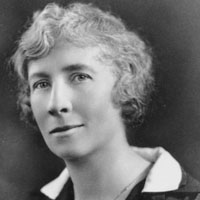
3 Scholars Receive 2020 Lillian Gilbreth Postdoctoral Fellowships
On March 27, 2020, Purdue Engineering announced three promising engineering scholars as the next cohort of Lillian Gilbreth Fellows.

5 Scholars Receive Lillian Gilbreth Postdoctoral Fellowships
On Sept. 27, 2019, Purdue Engineering launched five of the world’s most promising young engineering scholars on paths toward becoming pioneers in the spirit of the legendary Dr. Lillian Moller Gilbreth.
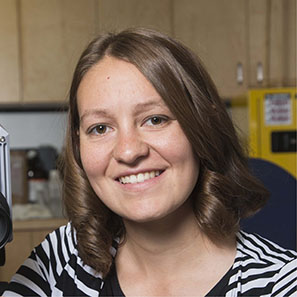
Purdue Engineering Names 2018 Lillian Gilbreth Postdoctoral Fellows
The Purdue University College of Engineering has announced the five researchers selected as 2018 Lillian Gilbreth Postdoctoral Fellows, a program that recognizes outstanding scholarly achievement and innovative interdisciplinary research with a broad impact on society and industry.
Events
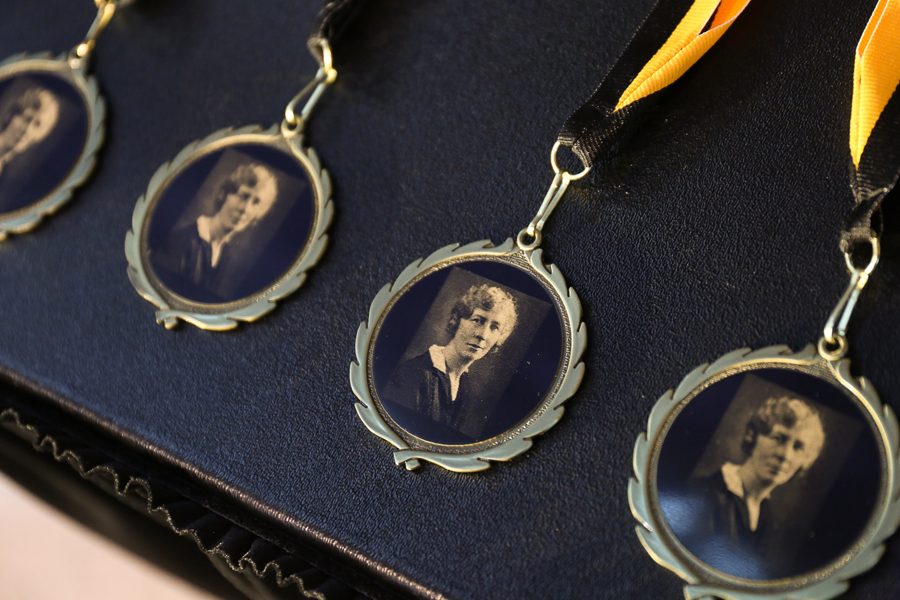
Celebration of Lillian Gilbreth, Purdue Engineering Professor 1935-1948
Wednesday, March 23, 2024, 3:30 - 5:30p.m. | Herman and Heddy Kurz Atrium, Neil Armstrong Hall of Engineering | RSVP by February 25, 2022 or watch live.
Fellowship Awardees 2024
Fellowship Awardee 2024
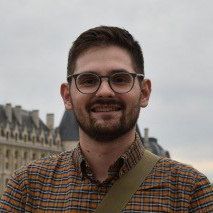
Fellowship Awardee 2024
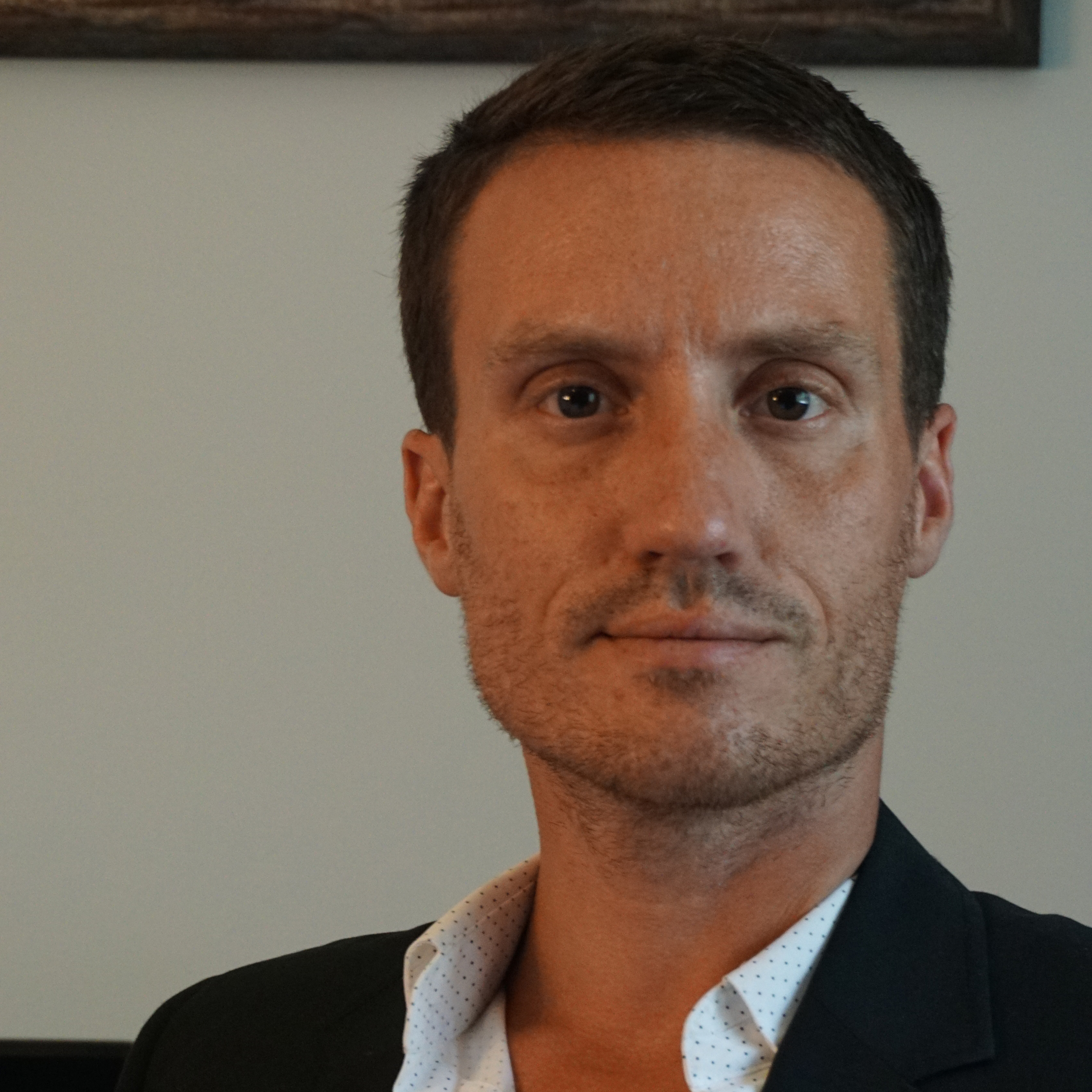
Fellowship Awardees 2023
Fellowship Awardee 2023
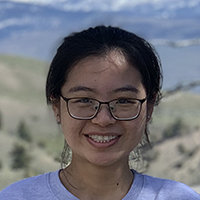
Fellowship Awardee 2023
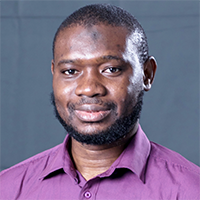
Fellowship Awardee 2023
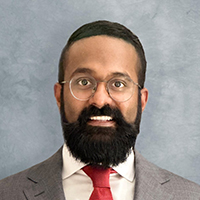
Fellowship Awardee 2023
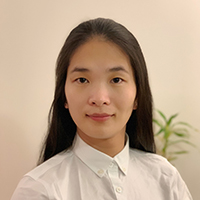
Fellowship Awardees 2022
Fellowship Awardee 2022
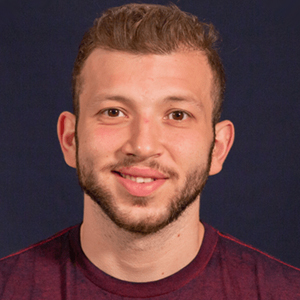
Fellowship Awardee 2022
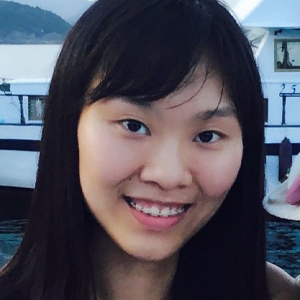
Fellowship Awardee 2022
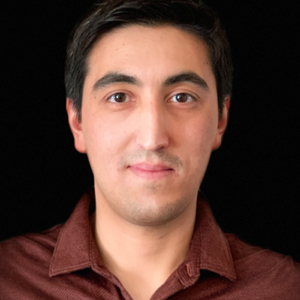
Fellowship Awardee 2022
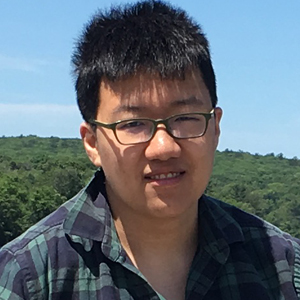
Fellowship Awardees 2021
Fellowship Awardee 2021
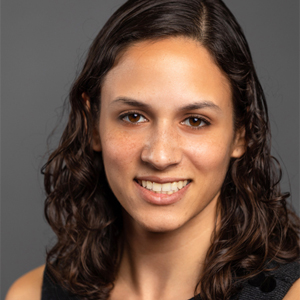
Fellowship Awardee 2021

Fellowship Awardees 2020
Fellowship Awardee 2020
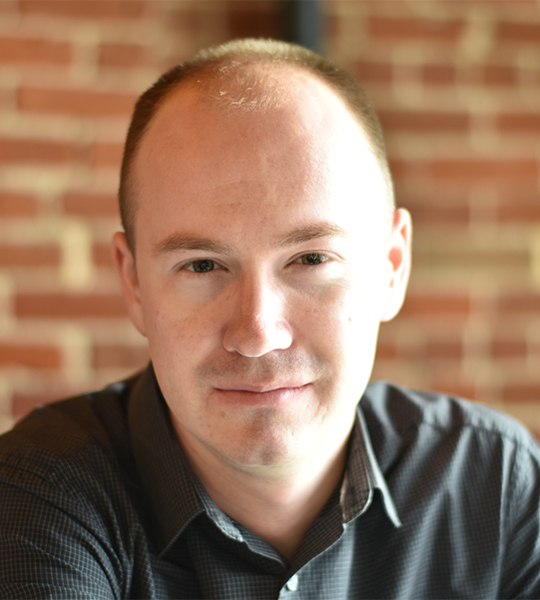
Fellowship Awardee 2020
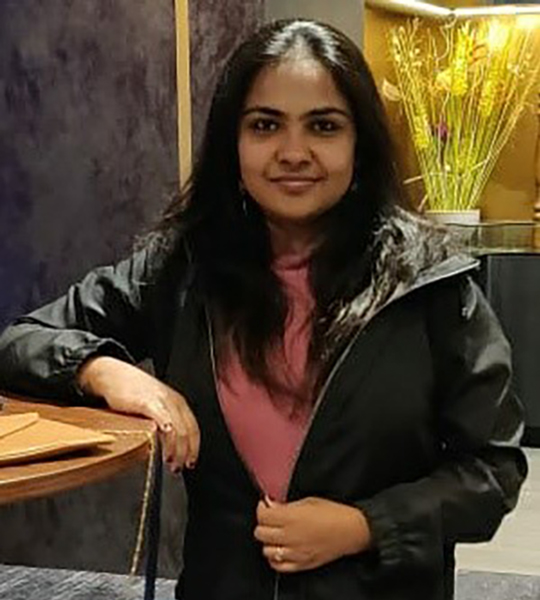
Fellowship Awardee 2020

Fellowship Awardees 2019
Fellowship Awardee 2019
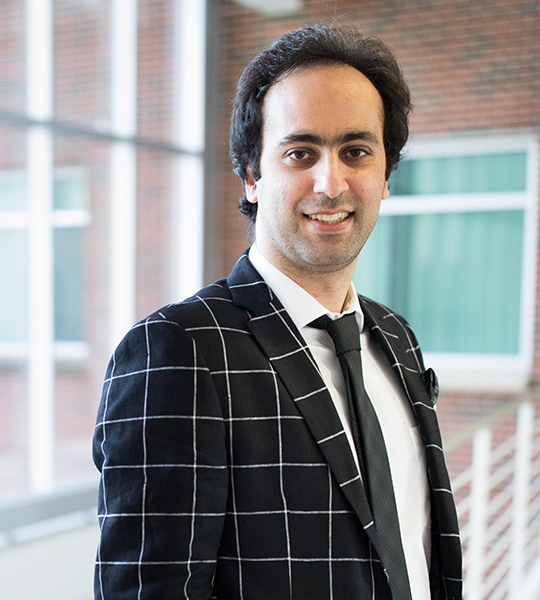
Fellowship Awardee 2019
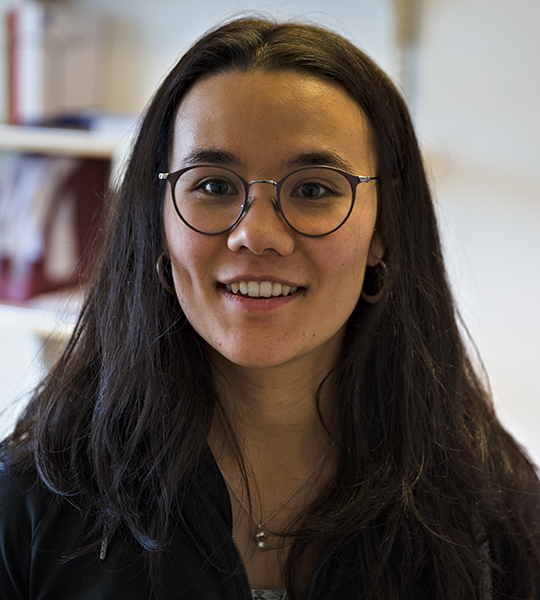
Fellowship Awardee 2019
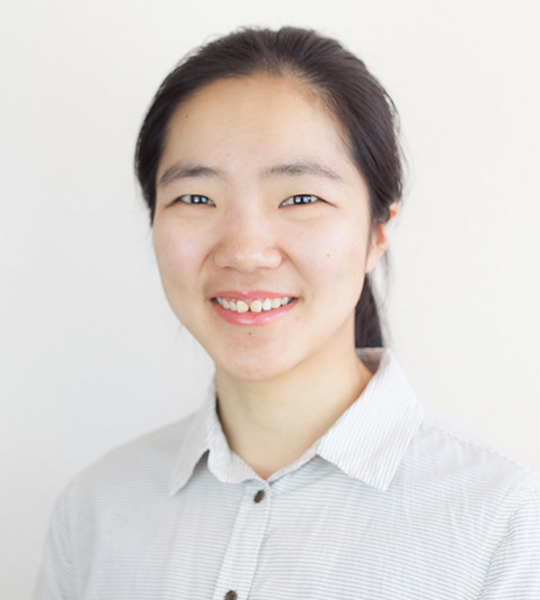
Fellowship Awardee 2019
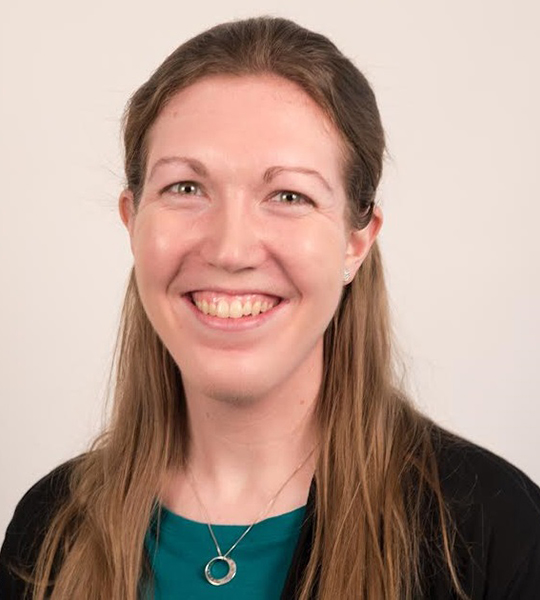
Fellowship Awardee 2019
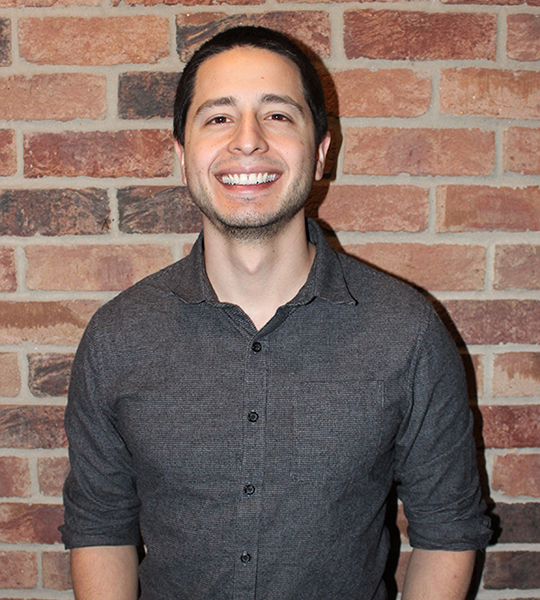
Mentoring with multiple advisors
Ke Ma, a 2019 fellowship awardee, is continuing her postdoctoral research work in Letian Dou’s lab in Purdue’s Davidson School of Chemical Engineering. She earned her PhD from the University of Colorado at Boulder.
“My Gilbreth Fellowship research is focused on our device fabrication of solar cells, understanding the fundamental knowledge about them and trying to improve it,” explained Ma.

(Purdue University photo/Vincent Walter)
Specifically, Ma studies the semiconducting material called perovskite, an emerging, promising material for future solar cell devices. Perovskite materials are used in solar cell devices as an alternative to expensive silicon crystals, because they can be manufactured at lower cost and using less energy. Her research uses combination of perovskite and organic semiconductors to solve the charge transfer and stability issue at the junction between two materials in perovskite solar cells and to construct efficient, stable next-generation solar cell devices. She hopes to market and commercialize the perovskite solar cells, and the fellowship has helped her advance this research.
“The Gilbreth Fellowship has allowed me to have multiple advisors — from chemical engineering and also from chemistry,” Ma said. “They provided the advices and suggestions from all different disciplines that allowed me to advance my technology and the knowledge in my research project.”

(Purdue University photo/Vincent Walter)
Ma said that the fellowship offered her opportunities to diversity her research experience and learn different lab management styles from different professors. “That’s definitely a help for me as an independent researcher in the future,” she explained.
She also appreciated the opportunity to present her research at the 2021 Virtual MRS Spring Meeting “because of this opportunity through the fellowship, more people are noticing the importance of organic semiconducting interlayer in building stable and efficient perovskite solar cells. This joint effort allowed our group to be selected for an award by the Department of Energy”.
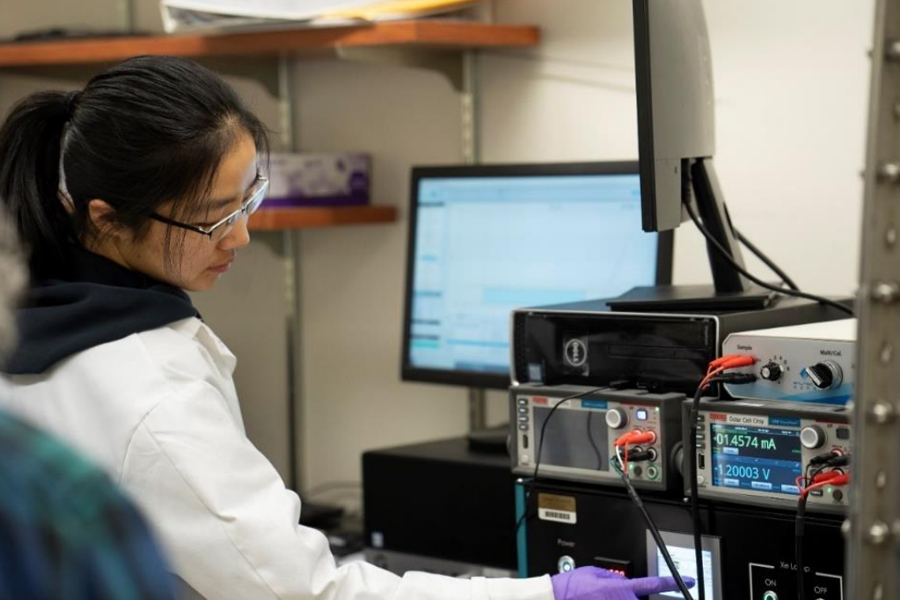
(Purdue University photo/Vincent Walter)
Interdisciplinary collaboration and career path
Melinda A. Lake was named a Lillian Gilbreth Postdoctoral Fellow in 2019, and is continuing her fellowship research with her advisors, Dr. Jacqueline Linnes, Marta E. Gross Associate Professor of Biomedical Engineering; Dr. Steven Wereley, Professor of Mechanical Engineering; and Dr. Tamara Kinzer-Ursem, Marta E. Gross Associate Professor of Biomedical Engineering; all of Purdue University. Lake earned her PhD from The Ohio State University.
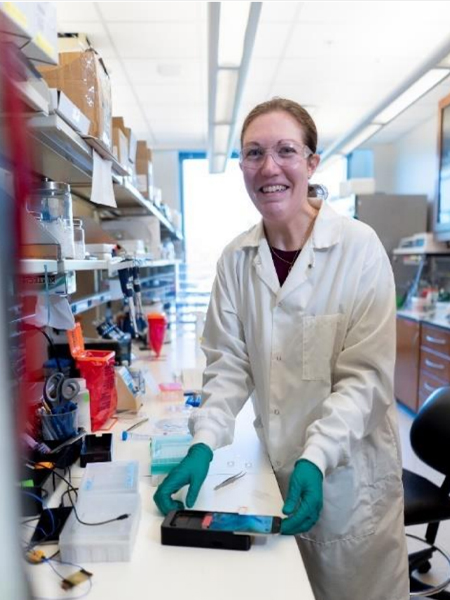
(Purdue University photo/Vincent Walter)
“For my Gilbreth Fellowship Research, I developed microfluidic devices for point-of-care diagnostics of diseases such as malaria and HIV in blood and detection of Vibrio cholerae, which causes cholera, in water,” Lake explained. “The devices are intended to help eradicate these diseases someday by improving diagnostic tools.”
Lake appreciated the Fellowship’s emphasis on interdisciplinary collaboration. “As a mechanical engineer, I work on teams of biologists and biomedical engineers so that we can develop this technology to be scalable,” she said. “Through the Gilbreth Fellowship, I have developed as a researcher because of the interdisciplinary collaboration to build my devices to be compatible with the biology that the biologists and biomedical engineers develop.”
In terms of professional development, in August 2019 Lake presented her PhD work at the Africa International Biotechnology & Biomedical Conference (AIBBC) in Mombasa, Kenya. In October 2021, she presented a poster on her HIV diagnostics project at MicroTAS 2021 in Palm Springs, CA, and also attended the Biomedical Engineering Society (BMES) 2021 conference to present at the Meet the Faculty Candidate poster session in Orlando, FL.

(Purdue University photo/Vincent Walter)
Having the fellowship helped Lake know what she wants to do in her career. “The Gilbreth Fellowship helped clarify my path, and I’m currently seeking to become a tenure track assistant professor.”
The fellowship also helped Lake realize that she wants to develop her future lab to build translatable, scalable technology to help people. “With the tools that I’m developing, manufacturers could produce them in bulk and distribute them to populations that need them,” she said. “We could have these point-of-care devices tested in the field or used in hospitals and directly impact patients and improve their quality of life.”
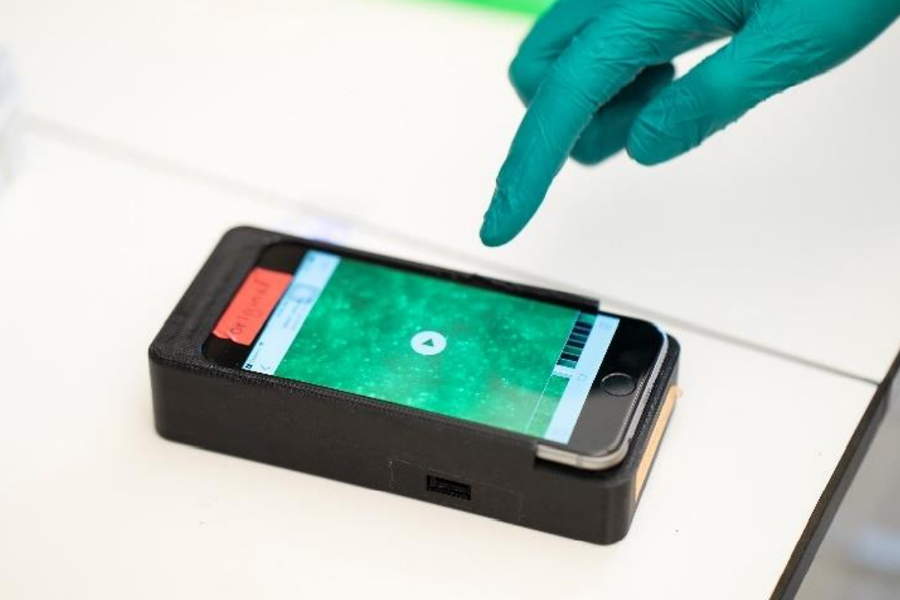
(Purdue University photo/Vincent Walter)
Fellowship Awardees 2018
Fellowship Awardee 2018
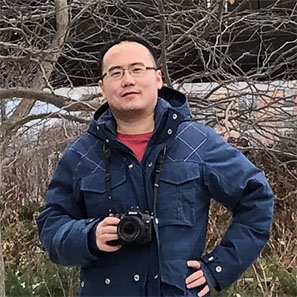
Fellowship Awardee 2018
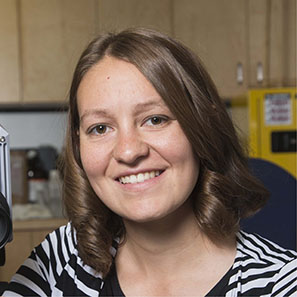
Fellowship Awardee 2018
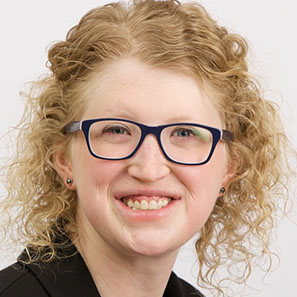
Fellowship Awardee 2018
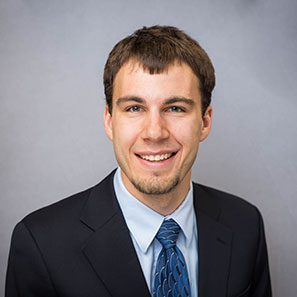
Fellowship Awardee 2018

Research skills and freedom
Caitlin R. Proctor, assistant professor in Agricultural and Biological Engineering and Environmental and Ecological Engineering at Purdue University, was a member of the inaugural Gilbreth Fellowship cohort in 2018. Proctor was chosen from hundreds of applicants from around the world after earning her PhD in Life Sciences at the Swiss Federal Institute of Aquatic Science and Technology at Eidgenössische Technische (ETH), Zurich, Switzerland.
“The Gilbreth Fellowship offered me a great opportunity because I did my PhD abroad,” Proctor said. “I had to become reacquainted with the American system for funding and research and how it’s done here. I was able to come back to the U.S. and learn some of those skills, including grant writing. And I was also able to take advantage of Purdue’s many professional development opportunities.”
For the fellowship, Proctor joined a drinking water and materials research project with Andrew Whelton, professor of Civil Engineering and Environmental and Ecological Engineering; John Howarter, associate professor of Materials Engineering and Environmental and Ecological Engineering; and J. Paul Robinson, the SVM Professor of Basic Medical Sciences and Biomedical Engineering. Proctor also mentored undergraduate and graduate students, and sat on several graduate committees.
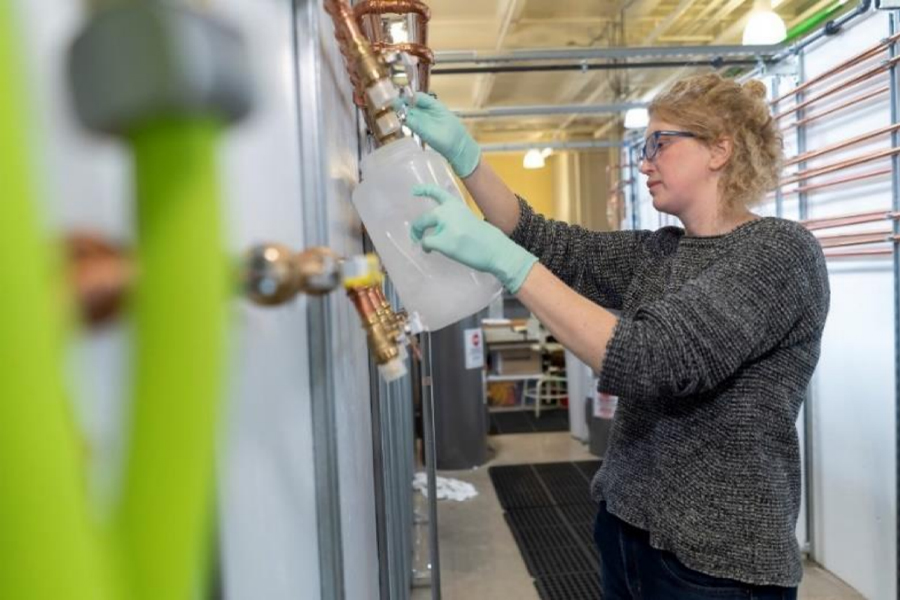
(Purdue University Photo/Vincent Walter)
Proctor appreciated the research freedom she had during her Gilbreth Fellowship. “I was able to apply for a number of grants and I’m still working on some of those research questions,” she said. “I’m working on the COVID-19 questions we have about stagnation in buildings, and we have an entire set-up in the hydraulics laboratory of Hampton Hall, where we’re continuing to test some hypotheses.”
She also took advantage of professional development opportunities. “During my post-doc, I was able to participate in many Purdue programs, including a valuable hands-on teaching workshop with external speakers,” Proctor said. “I was also able to travel to both international and national conferences, which helped me form connections and develop my faculty package.”
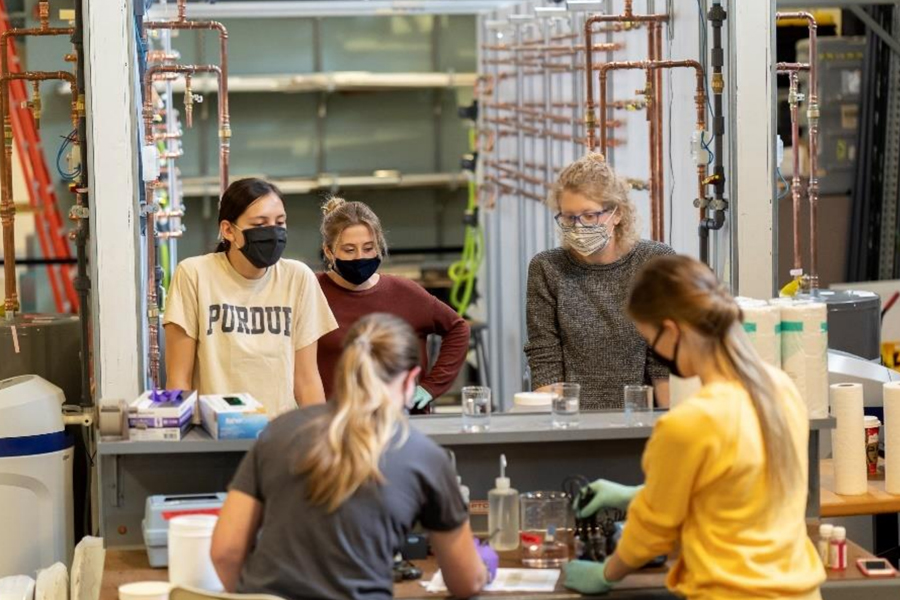
(Purdue University Photo/Vincent Walter)
“My fellowship really taught me that I loved academia, so I was able to have the freedom to work on different research projects to get involved with disaster response in those research projects and also work directly with graduate students on new problems that expanded my horizons,” Proctor said.
Collaboration, independence and peer review
Jeffrey S. Lowe, also a member of the 2018 fellowship cohort, is now an electrochemist at General Motors. Lowe earned his PhD from the University of Michigan. During his postdoctoral fellowship he worked with Jeff Greeley, professor of Chemical Engineering, and Christina Li, assistant professor of Chemistry, on research to develop a combined computational/experimental approach to develop structure-property relationships for electrocatalysts.
In his research, Lowe showed how a metal which is underexplored in catalysis, indium, may be promising for an important set of reactions in renewable energy. For example, he demonstrated how indium oxyhydroxide can be used to remove carbon monoxide contaminants in fuel cells, a longstanding challenge in renewable energy research. Potential future directions from his work are to consider indium-containing catalysts for other types of reactions, such as the renewable production of hydrogen.
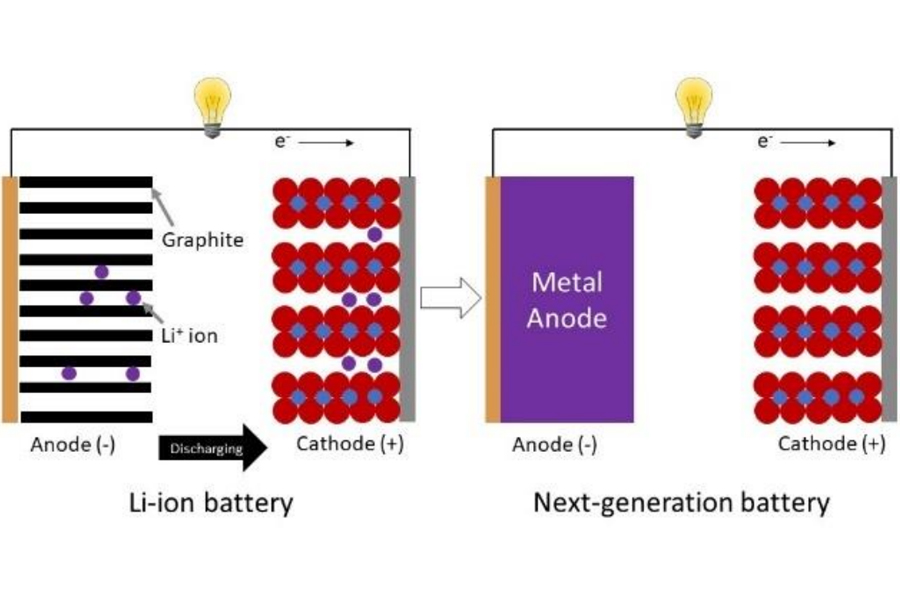
(Image/J. Lowe)
“Having the Gilbreth Fellowship enabled me to collaborate across departments, since the intent of the Gilbreth Fellowship is to be interdisciplinary in nature,” Lowe explained. “In my specific instance, I was able to collaborate in chemical engineering and in chemistry, which made my projects more impactful.”
Besides the collaboration, Lowe expanded his expertise by working more independently on research projects than he did during his PhD. “[The fellowship] really enabled me to develop my skills in the area of fuel cells and electrocatalysis, which are distinct from what I did during my PhD when I focused on next generation batteries,” he said. “In my position at GM, I’m able to develop unique strategies in this area based on my related experience at Purdue.”
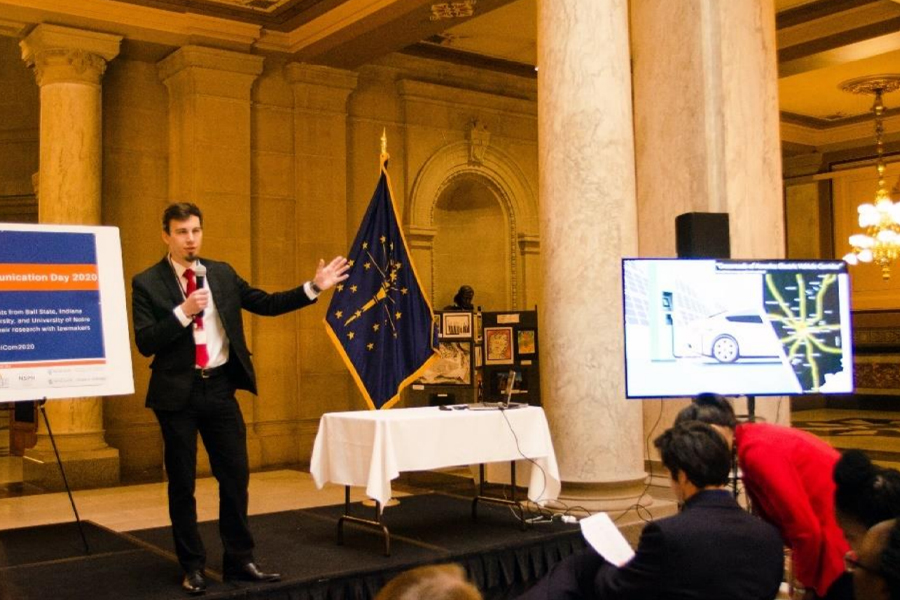
(Photo provided)
As part of the Gilbreth Fellowship cohort, Lowe and the other fellows met approximately weekly prior to the COVID-19 pandemic, which enabled them to get together and write. “It was beneficial to be there as a cohort because we could also do some peer review for the various writings that we were working on,” he said.
Lowe is enthusiastic about the Gilbreth Fellowship. “It’s a great program, and I’m so happy to be a part of it,” he said.
